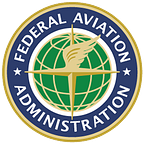The Wait is Part of the Journey
By Dr. Susan Northrup, FAA Federal Air Surgeon
We are very aware of the frustration that many have with the airman medical certification process. Many conditions require an observation period before the risk to public safety drops back to that of the general population or specific testing to ensure a pilot can maintain adequate control in flight. Fortunately, as medicine advances, we are able to certificate pilots with more and more complex conditions that were previously disqualifying. Unfortunately, this comes at a cost to the individual in expense (sometimes) and inconvenience as well as to the FAA in terms of workload, which can lead to delays.
Let’s consider insulin-treated diabetes mellitus as an example. Prior to 1996, this was disqualifying for all classes of medical certificates, but then protocols were developed to allow Class III special certification. A few years ago, technology advanced sufficiently that we were able to extend this to Class I and II medical certificates. This significantly increased our workload while our staffing remained the same. As my predecessor liked to say, it is easy to say no, but sometimes it’s very difficult and time-consuming to safely get to yes. Please know that we are taking steps to reduce processing time.
Recall that we allow aviation medical examiners (AMEs) to issue a medical certificate in select cases via the Conditions an AME Can Issue (CACI) and AME Assisted Special Issuance (AASI) processes. Both allow the pilot to leave the AME office with their certificate in hand, and the former helps to reduce the number of cases requiring review by the FAA.
We have also expanded our staff in mental health and neurology. Not only is there an increase in the number of applicants for medical certification, but an increased percentage of these have a mental health diagnosis, including attention deficit hyperactivity disorder (ADHD). We are also actively recruiting additional staff to help in this area.
Another recent change expanded the ability of AMEs to upload medical documents pertinent to certification. Although the application for both pilot and medical certification has been online for some time, the security aspects of uploading documents have been a major challenge. To help speed the process along, follow the checklist in the disposition tables in the Guide for Aviation Medical Examiners for many conditions, provide all the documents required in any letters you receive from the FAA, and bring these documents to your AME. Please read any correspondence from the FAA carefully. If we ask for a study, we have specific reasons for this, and failure to provide the information will delay certification or even result in a denial.
We regularly expand the number of conditions that we can certify as safety permits. The authorization of Class I or II medical certificates to some pilots who use insulin to control their diabetes has been a success; to date, there have been no medical incidents related to insulin use in this group of pilots. With regard to cardiac conditions, we now certificate pilots with pacemaker dependence and have halved the observation period for pilots with a Class I or II medical for some coronary stents. The treatment of cancer has improved so dramatically that we have now certificated pilots for conditions that would have been uniformly fatal just a few years ago, including one pilot with a brain metastasis, which resolved in treatment.
Some of the biggest changes have been for mental health. We have just added a new medication for the treatment of depression (bupropion extended release) and are reviewing additional medications. We have also reduced the minimum evaluation period required for ADHD for many pilots, saving both time and expense. Finally, formal neuropsychological testing for selective serotonin reuptake inhibitor (SSRI) renewals is no longer automatically required for renewals unless it is clinically indicated.
Improving efficiency with this process is and remains a work in progress. We look forward to working with you to get you your medical certificate as quickly as possible.
Dr. Susan Northrup received a bachelor’s degree in chemistry, a medical degree from The Ohio State University, and a master’s degree in public health from the University of Texas. She is double board-certified by the American Board of Preventive Medicine in Aerospace Medicine and Occupational Medicine. She is a retired U.S. Air Force colonel and a former regional medical director for Delta Air Lines. She is also an active private pilot.
